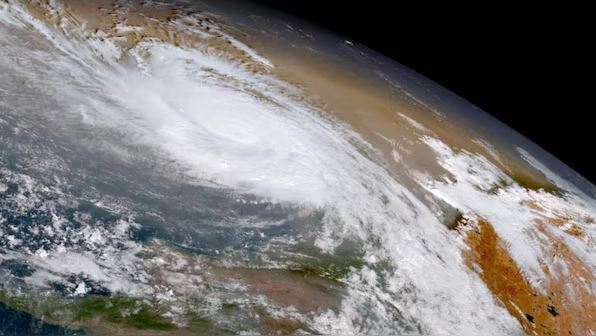
Weather plays an important role in our daily lives. It affects our safety, travel plans, health, environment, and economy. But have you ever wondered who works behind the scenes to make sure we receive timely weather warnings or forecasts? This is where the National Center of Meteorology (NCM) comes into the picture.
The National Center of Meteorology is a leading government institution responsible for observing, studying, and predicting weather and climate patterns. In many countries, including the United Arab Emirates (UAE), the United States, India, and others, the NCM plays a vital role in protecting people and property by providing accurate and timely weather information.
In this article, let’s understand what the National Center of Meteorology does, why it is so important, and how it helps individuals, businesses, and governments prepare for changing weather.

The National Center of Meteorology (NCM) is the official body that studies weather and climate patterns in a country. This center uses advanced technology, satellites, radar systems, weather balloons, and computer models to monitor the atmosphere.
For example, in the UAE, the NCM is located in Abu Dhabi and covers the entire country’s airspace and weather conditions. In India, the Indian Meteorological Department (IMD) performs a similar role, and in the USA, the National Weather Service (NWS) is the official meteorology authority.
The main tasks of the National Center of Meteorology include:
Weather is unpredictable, but with the help of scientific tools and skilled meteorologists, the NCM makes it possible to predict future conditions with great accuracy. These predictions save lives, reduce damage, and help decision-makers take timely action. Here’s why the NCM is so important:
The NCM warns people about extreme weather events. For example, when a tropical storm or heatwave is expected, the NCM sends alerts through SMS, radio, social media, and television. These warnings allow people to prepare in advance and stay safe.
Weather can affect planes and ships. Pilots and sailors rely on the NCM’s forecasts to avoid turbulence, storms, or rough seas. This ensures the safety of passengers and cargo.
Farmers depend on rainfall and temperature patterns for planting and harvesting crops. Accurate weather forecasts help them plan their farming activities, reducing crop loss and improving food production.
In case of floods, earthquakes, or sandstorms, the NCM provides early warnings to disaster response teams. This allows emergency services to prepare and reduce the impact on people and infrastructure.
The NCM also studies climate change to understand how global warming, carbon emissions, and human activities affect the environment. These studies are important for planning sustainable development and environmental protection.
The NCM uses state-of-the-art technology to collect and analyze data. Some of these technologies include:
Additionally, the NCM also uses Artificial Intelligence (AI) and Big Data analytics to improve the accuracy of forecasts.
The National Center of Meteorology is not just about short-term weather forecasts. It is also about preparing for long-term climate risks. As climate change brings new challenges like rising sea levels, stronger storms, and higher temperatures, the role of the NCM will become even more critical.
Many centers are now investing in:

Staying updated with the latest weather news is easy, thanks to the NCM. You can:
For example, in the UAE, you can check and in India, you can visit for the latest information.
The National Center of Meteorology plays a silent but powerful role in our lives. Whether it is warning us about dangerous storms or helping farmers plan their crops, this institution keeps us prepared for whatever the skies may bring. As the world faces greater climate challenges in the future, the NCM’s work will remain essential for a safe, secure, and sustainable tomorrow.
Read More:- Deyaar’s Latest Announcement Shakes Up the UAE Property Market
